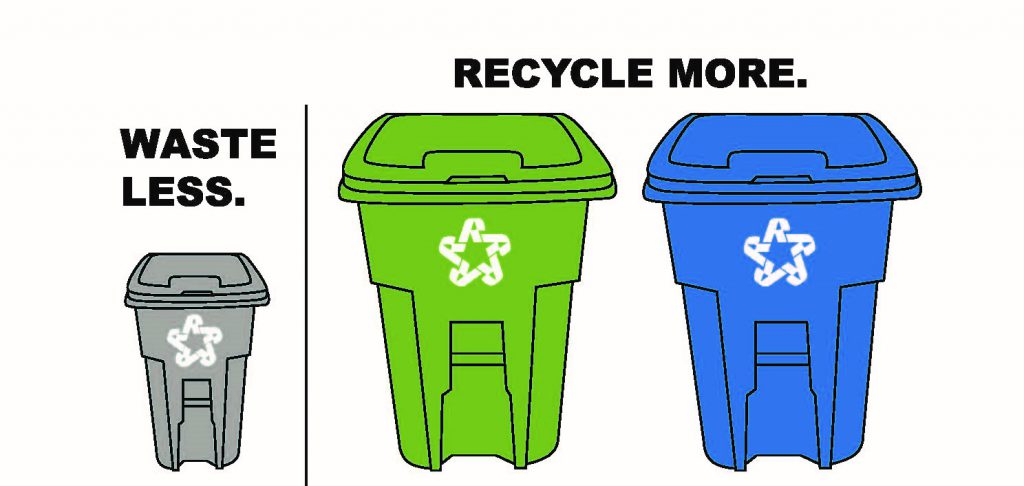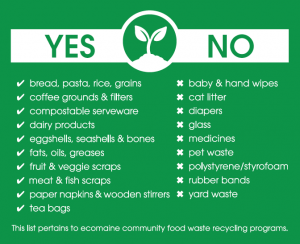Sustainable living: This is how it’s done
What is Sustainability? Well, it’s about the balance and continuation of resource exploitation and disposal, development and production, in a way that doesn’t compromise the current and future needs of generations to follow. By now, there’s no denying it, our time on earth has been astronomically wasteful. The issue of waste is such a gigantic issue that most of us get lost in understanding what waste really incorporates.
Sustainable living is like being on a diet or joining the gym for the first time. You start by imposing drastic changes to your routine and soon enough it becomes too much.
You do it because you want to see an end result to it and want something to change. But living sustainably is tricky because the results you get are cryptic and unclear.
We buy, we consume and we throw away with little consideration of what happens after the bins get taken off our hands. So how do we reduce our daily impact without letting old wasteful habits creep back in?
Let’s take it one step at a time….
Don’t worry. You can relax. You can live sustainably without having to live like the Stone Ages. But how? Especially in a megadiverse highly productive city like London.
Well, let’s start by asking yourself where do you shop for food? Let me guess, the very accessible, seemingly cheap Tesco, Sainsbury’s or Asda? I don’t blame you. But have you ever stopped and looked around at the quantity of plastic packaging suffocating the life out of the fruit and veg department? This brings us to step one:
1) Plastic-free shopping
Honestly reducing your plastic and packaging waste will mean you won’t have to take the bins out so often so listen up: guess where Britain’s first plastic-free supermarket zones have opened…Right here in London! Thornton Budgens in Belsize Park, North London, offers aisles with more than 1000 products ranging from vegetables, crisps, cheese and even meats in non-plastic packaging!
How A Zero-Plastic Store Works:
- Weigh
- Fill
- Weigh
- Label
- Pay

Hackney’s Bulk Market sells everything by weight and adheres by a “bring your own containers” policy. You choose exactly what you need and exactly what you’ll use instead of having to throw out of date & “forgotten at the bottom of your fridge” foods. So why not choose to shop here, at least for your all-time essentials like pasta, cereals, chocolate, bread, dairy, coffee and tea!
If you’ve got time to spare on a sunny Sunday afternoon you can walk through many of London’s farmers’ markets with plenty of organic veggies coming straight from the farm and plastic-free products:
- In Camden Market, some stalls display solid soap bars, liquid soap, shampoo bars, body lotions, lip balms in metal containers with the option to refill them on your next visit (Go visit the Read the Label stall or their website: http://www.read-the-label.co.uk/shop)
- For other sustainable beauty, skin & hair care products visit Lush and try their beautifully scented solid shampoo or conditioner! (Lush: https://uk.lush.com/products/conditioners)
Remember to always make an effort in buying locally sourced products over imported goods reducing harmful transport emissions from overseas. It’s often pesticide-free so healthier for the environment but also for you!
I highly recommend taking a look at Wearth, an online shopping platform promoting UK eco brands and zero waste online shopping. Here’s one of their helpful blogs listing simple ways for you to help the planet: https://www.wearthlondon.com/blog/best-zero-waste-stores-in-london-and-beyond
2) Use used furniture
To all university students out there who are either moving out of or moving in their halls of residence, flat or house share please listen up.
Before rushing into Primark and completely raid their home department consider scrolling through “for sale” groups on Facebook with over 77 000 people looking to buy from you or sell you just about anything at prices that even Wilko can’t beat. This, also, of course, applies to any working professional. (Go check out this Facebook group).
An increasing number of universities across the UK are setting up re-use and unwanted student furniture collection schemes. It’s worth getting in touch with your university and see if any organized item drop-off or pick-up events are happening across campus, especially during Freshers week. Also in place in many London universities are donation banks across campus student accommodation where staff and students can donate unwanted clothes, shoes, books, electrical items and more in the British Heart Foundation banks. They are delivered to local BHF charity shops where they are sold to raise money for lifesaving research.
3) Green fashion
This is a tricky one… Walking in and walking out with three different outfits under your arm in a matter of minutes, at a price you probably won’t be able to find in the newly established fancy, ethical, sustainable and even vegan fashion stores across the city. But the reality is, Fast Fashion needs to Slow Down. The inexpensive and highly disposable nature of clothes from Zara, H&M, Primark and many more involves textile waste, atmospheric and water pollution from the burning of excess clothes, not to mention the unethical working conditions promoted.
There is no need to go bankrupt by purchasing sustainably and ethically designed clothing that, in my student minimum wage pay case, is a luxury I cannot afford. We need to start thinking before buying.
Of course, the option of donating the clothes you don’t wear is still an option, but the root of the issue still persists.
Victims of fast fashion aftermath are charity shops who have been overflowing with public donations, slowly believed to become the dumping ground for high street poor quality and unrecyclable clothing.
But, popular high street chains are also known to donate surplus stock to charity shops providing a brilliant opportunity for shoppers to find little gems at unbeatable prices. So instead of heading straight over to the popular stores help declutter charity shops:
- M&S has confirmed that it donates surplus stock to Oxfam
- Brand new Ted Baker leather shoes have also been found in Oxfam for £9.99 compared to £256 on Amazon
So if you spot brand new items with no label or tag, chances are they come from popular high street stores as detagging prevents returns to the original shop.
Also, a good idea is to follow your local charity shops on social media to get first-hand insider info and sales details on Facebook, Twitter or Instagram.
So head on over to your local Oxfam, British Heart Foundation and many more to check out some of their quirky, original and vintage stuff before storming into the bright-lighted, head throbbing, crowded high street retailers.
4) Recycling

Okay so let’s make this final step clear and to the point because god knows how many of us have been lost in this process – I included. I ask myself daily if this or that can be recycled or not, and after some light research, I find myself constantly amazed and surprised as to which easy mistakes I have made in sorting out my waste:
If Plastic, Glass or Bottle-shaped – Recycle it!
- From your kitchen to your bathroom, much can be recycled: aerosols, shower gel containers, shampoo and conditioner bottles
- When recycling glass leave the lid on (metal lids and bottle caps) and for plastic caps get informed on whether they are also accepted or rejected
- Quick rinse!
- And remember to crush plastic bottles to make space in the bin
Paper & Cardboard
- Anything from Amazon prime delivery boxes to toothpaste packaging and loo roll tubes can be recycled.
- Try scrunching paper into your hand, and if it doesn’t spring back: not recyclable!
- But any cardboard or paper covered in food like greasy pizza or takeaway boxes shouldn’t make their way into your recycling bin!
Food Waste
If you think food just naturally decomposes itself harmlessly on landfill sites – well it doesn’t.
It rots – and releases methane which is way more destructive than carbon dioxide for the atmosphere. On the other hand, recycled food waste can be processed and transformed into electricity or developed into compost used as fertilizer by local farms.
Worry not – separating your food waste from your general waste bin is actually the easiest step you can take:
- Order a little container to store your food waste in the kitchen
- Get in touch with your local council – some let your order compost bins online with most of them being discounted to encourage recycling
- The Yes & Nos in recycling Food Waste:

And basically anything else you’ve cooked and consumed!
Address book:
- Thorntons Budgens: 199 – 205 Haverstock Hill, Belsize Park, NW3 4QG, London, Open from Monday to Saturday (7 am – 22 pm) and Sunday (12 pm – 18 pm)
- Bulk Market: Arch 6 Bohemia Place, E8 1DU Hackney, Open Tuesday to Sunday
- Camden Market: Camden Lock Place, NW1 8AF, London, Open every day from 10 am
- Facebook “for sale” London group: (link)


